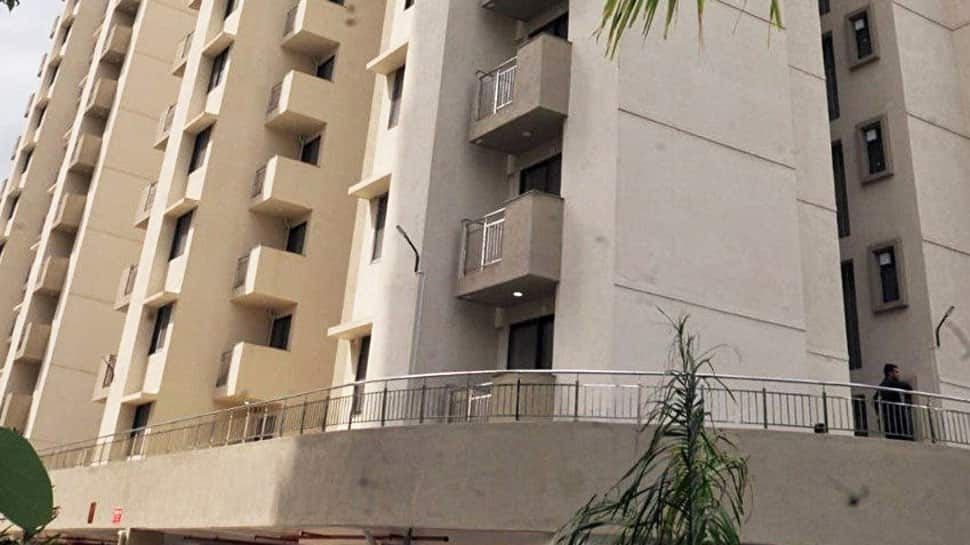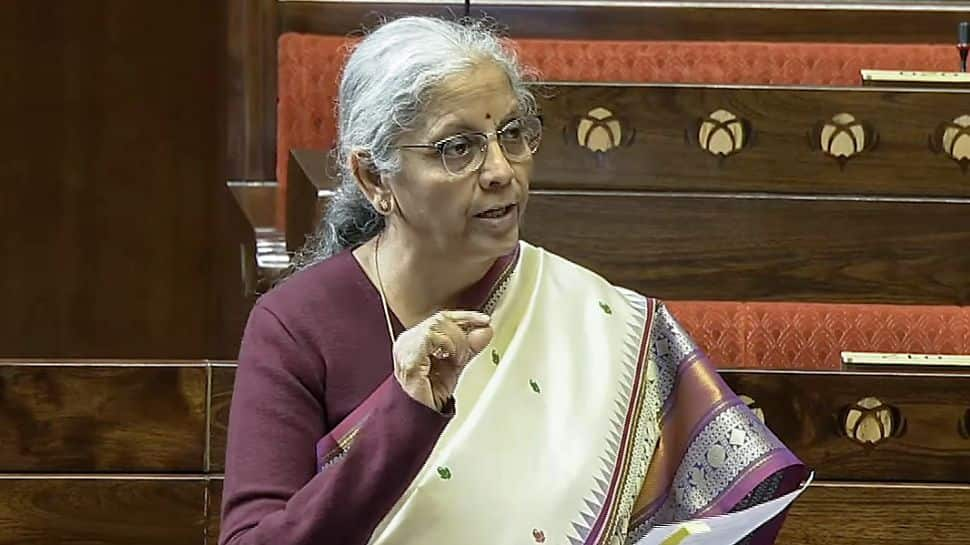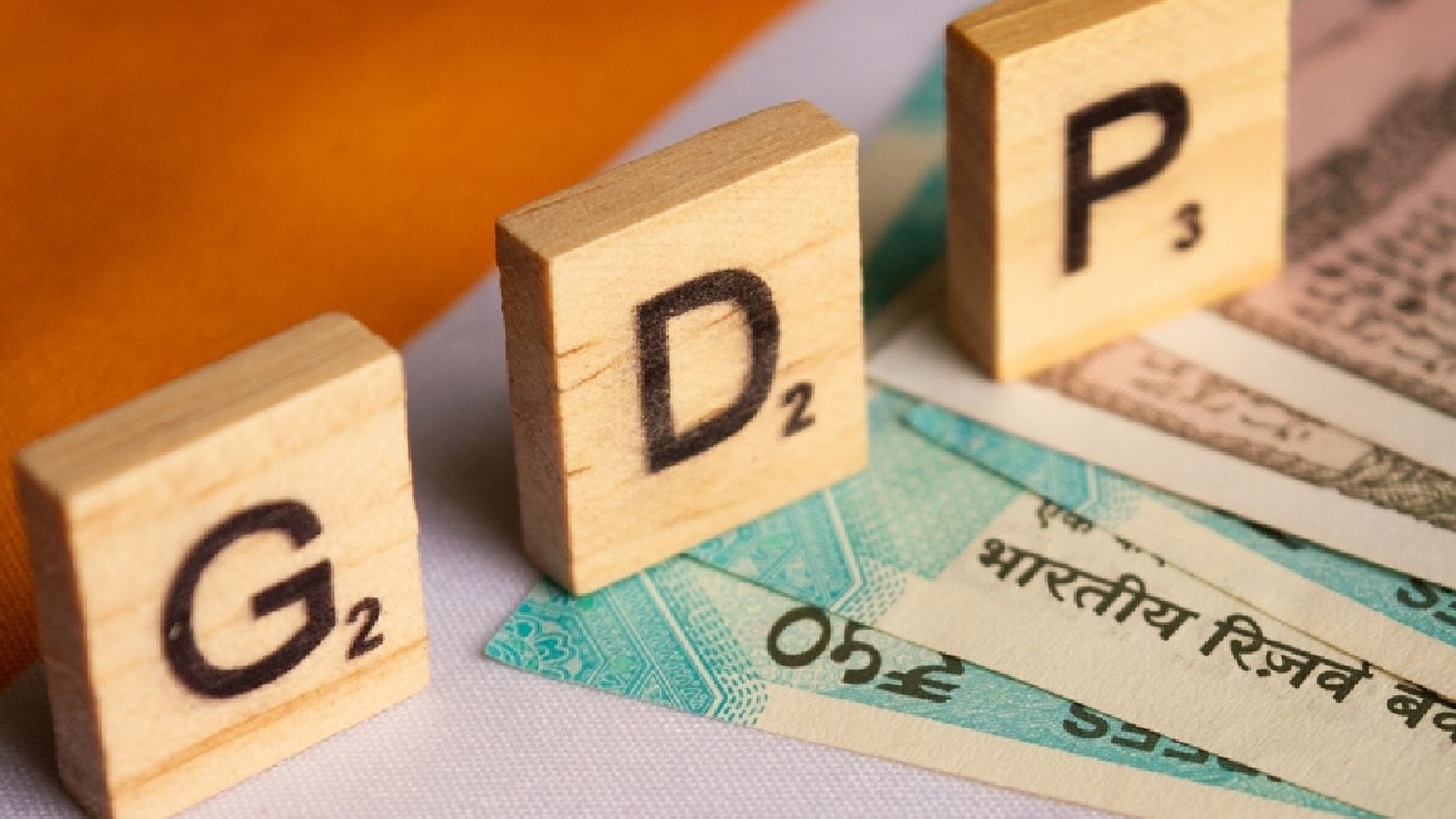Business
SBP Chief Projects GDP Growth Between 3.25% and 4.25% – SUCH TV

The State Bank of Pakistan (SBP) has projected GDP growth of 3.25 to 4.25 percent for FY26, citing improvements in key macroeconomic indicators. However, the textile sector has warned that high production costs and policy constraints are affecting its global competitiveness, despite the overall positive economic outlook.
Speaking at the annual meeting of the Pakistan Textile Council (PTC) on Tuesday, SBP Governor Jameel Ahmed highlighted several factors supporting the growth forecast.
These include a current account surplus in FY25, record remittances of $38 billion, and an increase in SBP’s foreign exchange reserves to $14.5 billion, supported by $7.8 billion in interbank market purchases.
He noted that inflation had dropped to 3.2 percent in June 2025, enabling the central bank to cut the policy rate from 22 percent to 11 percent over the year.
Fiscal consolidation, reforms in exchange companies, and stable external debt levels have also contributed to market confidence and overall economic stability.
Despite this optimistic outlook, the textile sector raised concerns about its ability to remain competitive globally.
Industry leaders questioned the growth forecast, particularly the upper bound of 4.25 percent, citing extensive flood damage to key crops, especially cotton, which is vital for the sector.
Floodwaters continue to threaten cotton-producing areas in Sindh.
PTC Chairman Fawad Anwar said that while macroeconomic indicators are improving, exporters are yet to feel any tangible relief.
He highlighted the exclusion of essential raw materials from the Export Facilitation Scheme (EFS) and ongoing structural barriers as major obstacles for the industry.
“The global market is offering Pakistan a once-in-a-decade opportunity, especially after the US imposed a 50pc tariff on Indian textile exports, impacting $16bn worth of shipments,” Anwar said.
“But unless bold policy action is taken now, Pakistan may miss this critical opening.”
He urged the government to urgently restore EFS access, reduce the cost of doing business, and implement long-term measures to help the textile sector capture greater global market share.
Business
UK inflation rises to 3.4%, driven by tobacco and airfares

Inflation has risen to 3.4% in the year to December, driven by higher tobacco prices and airfares, according to official figures.
The increase in average prices across the UK economy – the first in five months – was just above expectations, with many economists predicting only a slight uptick to 3.3%.
The cost of airfares was a contributor “likely because of the timing of return flights over the Christmas and New Year period”, the Office for National Statistics (ONS) said. It also reflected an increase in tobacco duty introduced in late November.
It is the last set of monthly inflation figures released before the Bank of England’s decision on interest rates in February.
In addition to tobacco and transport prices, “rising food costs, particularly for bread and cereals, were also an upward driver,” said ONS chief economist Grant Fitzner.
“These were partially offset by a fall in rents inflation and lower prices for a range of recreational and cultural purchases.”
In response to the figures, Chancellor Rachel Reeves said her priority was cutting the cost of living, citing measures in her November Budget including a freeze to rail fares and prescription charges.
“Money off bills and into the pockets of working people is my choice.
“There’s more to do, but this is the year that Britain turns a corner,” Reeves said.
Inflation in the UK is a measure of the Consumer Prices Index, which is a virtual basket of hundreds of everyday goods and services selected by the ONS that includes things like bread, fruit, furniture and different items of clothing.
The prices of these items are tracked by the ONS over the previous 12 months, and the basket is regularly updated to reflect shopping trends.
Business
AU Small Finance Bank net up 26% to Rs 667 crore – The Times of India

MUMBAI: AU Small Finance Bank, which has received RBI nod to convert into a commercial bank, reported a net profit of Rs 667.66 crore for the December 2025 quarter, up 26.3% from Rs 528.45 crore in the corresponding quarter last year. The improvement was driven by strong growth in core earnings and a sharp reduction in credit costs, which offset higher operating expenses.Net interest income (NII) rose 15.8% year-on-year to Rs 2,341.27 crore, compared with Rs 2,022.71 crore in the December 2024 quarter. Interest earned increased to Rs 4,727.47 crore from Rs 4,113.48 crore, while interest expended rose to Rs 2,386.20 crore from Rs 2,090.77 crore. On a sequential basis, NII increased 9.2% from Rs 2,144.42 crore in the September 2025 quarter, reflecting improved yields on advances and relatively stable funding costs.During the quarter, the bank also announced a series of board and senior management changes as part of a broader leadership realignment. The board approved the appointment of Phani Shankar as non-executive independent director for a three-year term. It also cleared the appointment of Vivek Tripathi, chief credit officer, as whole-time director, subject to regulatory and shareholder approvals. Uttam Tibrewal, who will complete his current term as whole-time director in April 2026, will continue as deputy CEO, while Divya Sehgal, non-executive non-independent director, resigned after completion of the integration of Fincare Small Finance Bank. V G Kannan is set to complete his second term as independent director in January 2026.Other income increased 17.0% year-on-year to Rs 723.80 crore from Rs 618.41 crore a year earlier, supporting overall revenue growth. Total income for the quarter rose to Rs 5,451.26 crore, compared with Rs 4,731.89 crore in the corresponding period last year.Operating expenses climbed 28.8% year-on-year to Rs 1,849.75 crore from Rs 1,436.21 crore, driven by higher employee costs and expansion-related spending, including regulatory-linked adjustments. Despite this, operating profit before provisions remained broadly stable at Rs 1,215.31 crore, compared with Rs 1,204.91 crore in the year-ago quarter.Provisions (other than tax) declined 34.0% year-on-year to Rs 331.14 crore from Rs 501.68 crore, reflecting lower credit costs. Tax expense increased to Rs 216.51 crore from Rs 174.78 crore, in line with higher profitability.Asset quality remained stable, with gross NPAs at Rs 2,880.54 crore, compared with Rs 2,335.51 crore a year earlier, while the gross NPA ratio was largely unchanged at 2.30% against 2.31% in the corresponding quarter last year. The bank’s capital position strengthened, with the capital adequacy ratio improving to 19.01% from 18.01%, providing headroom for future growth.
Business
‘Our refineries are robust!’: India can process Venezuelean crude oil when available; here’s what IOCL chairman said – The Times of India

Indian Oil Corporation Ltd (IOCL) said that the country’s refineries are capable of processing Venezuelan crude if supplies resume. “If at all things start settling down, if at all a lot of crude starts coming out of Venezuela, then can’t we import oil from Venezuela?” he said.The executive further added that the company, used to process Venezuelean crude a decade back and can do so again. “Venezuelan crude earlier when it was available, like 10 years back or eight years back when it used to be there in the market,” Sahney said at the World Economic Forum (WEF) in Davos.
Speaking about the capabilities of the refineries, the chairman highlighted that they are strong and can process the supplies. “So our refineries are varied, our refineries are robust. They can process in an admixed manner, but we can process Venezuelan crude if and when it is made available.”The remarks follow the US’s capture of outsted Venezuelan President Nicolas Maduro in a military operation and an agreement to send 50 million barrels of oil, worth $5.2 billion, to the interim Venezuelan government.Sahney also highlighted India’s favourable economic and energy landscape. “India is growing at a phenomenal rate, and everybody is interested in talking about doing business with India,” he said.Commenting on global crude prices, he noted, “Crude has been trading in the range of $60-65 per barrel over the past several months. For the better part of the last six months, they were at $60 or below. This is a good zone where economic growth is also happening and sellers of crude are comfortable.”Pointing out India’s reliance on imports, he said, “India remains heavily dependent on imports to meet its energy needs, with IOCL importing about 85-87% of its crude oil requirements. The current price band is supportive for economic stability.”Sahney explained that refining margins depend on more than crude prices. “Refining margin is a very broad term. It is finally affected by the cracks in the international market. Today, cracks are working fine. They have returned to normalcy but are still in a healthy zone,” he said.He added that government policy has also supported the sector. “There is no problem on the policy side. Whatever support is required has already been given. It is up to us to improve profitability by increasing efficiency, reducing costs and optimising the supply chain,” Sahney said.Moving forward, Indian Oil plans to continue investing across the energy value chain, including downstream petrochemicals and cleaner energy solutions.The WEF’s 56th Annual Meeting runs from January 19 to 23, 2026, in Davos-Klosters, with around 3,000 participants from over 130 countries, including world leaders, CEOs, innovators and policymakers, under the theme “A Spirit of Dialogue.”
-

 Tech1 week ago
Tech1 week agoNew Proposed Legislation Would Let Self-Driving Cars Operate in New York State
-

 Entertainment1 week ago
Entertainment1 week agoX (formerly Twitter) recovers after brief global outage affects thousands
-

 Sports6 days ago
Sports6 days agoPak-Australia T20 series tickets sale to begin tomorrow – SUCH TV
-

 Politics4 days ago
Politics4 days agoSaudi King Salman leaves hospital after medical tests
-

 Business5 days ago
Business5 days agoTrump’s proposed ban on buying single-family homes introduces uncertainty for family offices
-

 Tech5 days ago
Tech5 days agoMeta’s Layoffs Leave Supernatural Fitness Users in Mourning
-

 Fashion4 days ago
Fashion4 days agoBangladesh, Nepal agree to fast-track proposed PTA
-

 Tech6 days ago
Tech6 days agoTwo Thinking Machines Lab Cofounders Are Leaving to Rejoin OpenAI











